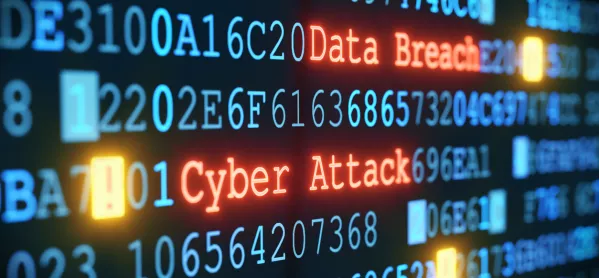One of the biggest multi-academy trusts in the country has suffered a “highly sophisticated” ransomware attack, it has emerged.
The attack on the Harris Federation comes with schools having recently been warned of a heightened cyber security risk.
This is the fourth academy trust that has been targeted this month, the trust said in a statement.
Exclusive: Schools warned of ‘increasing’ cyber attacks
Exclusive: Schools urged to act after Microsoft breach
Warning: Schools ‘find malware’ on DfE laptops
In the statement, the trust said that cyber criminals have accessed and encrypted, or hidden, contents from the trust’s IT system.
Academy chain falls victim to cyber attack
The statement reads: “A ransomware attack means that cyber-criminals have accessed our IT systems and encrypted, or hidden, their contents. We are at least the fourth multi-academy trust to have been targeted in March. The attack came to light on Saturday 27 March, and we have been working through the weekend to begin resolving it.
“This is a highly sophisticated attack that will have significant impact on our academies but it will take time to uncover the exact details of what has or has not happened, and to resolve... we are working closely with the National Crime Agency and the National Cyber Security Centre.”
As a precaution, the trust’s email system and telephone systems have been disabled, except for a switchboard service with limited service.
Pupil devices have also been disabled and cannot be used.
All of Harris’ academies that are yet to break for Easter are open, and will endeavour to keep open until the end of term, the statement says.
Commenting on the incident, a spokesperson for the National Cyber Security Centre said: “We are aware of an incident affecting the Harris Federation and are working with the trust and law enforcement to fully understand its impact.
“The NCSC has recently alerted the education sector to the significant threat posed by ransomware attacks, and we urge schools and colleges to follow our advice to protect themselves online.”




